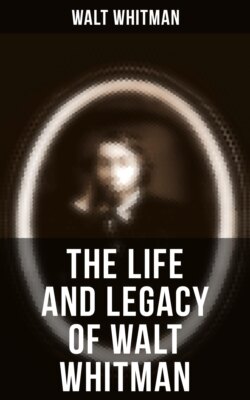Читать книгу The Life and Legacy of Walt Whitman - Walt Whitman - Страница 99
На сайте Литреса книга снята с продажи.
HOSPITALS CLOSING
ОглавлениеTable of Contents
October 3.—There are two army hospitals now remaining. I went to the largest of these (Douglas) and spent the afternoon and evening. There are many sad cases, old wounds, incurable sickness, and some of the wounded from the March and April battles before Richmond. Few realize how sharp and bloody those closing battles were. Our men exposed themselves more than usual; press'd ahead without urging. Then the southerners fought with extra desperation. Both sides knew that with the successful chasing of the rebel cabal from Richmond, and the occupation of that city by the national troops, the game was up. The dead and wounded were unusually many. Of the wounded the last lingering driblets have been brought to hospital here. I find many rebel wounded here, and have been extra busy to-day 'tending to the worst cases of them with the rest.
Oct., Nov. and Dec., '65—Sundays—Every Sunday of these months visited Harewood hospital out in the woods, pleasant and recluse, some two and a half or three miles north of the capitol. The situation is healthy, with broken ground, grassy slopes and patches of oak woods, the trees large and fine. It was one of the most extensive of the hospitals, now reduced to four or five partially occupied wards, the numerous others being vacant. In November, this became the last military hospital kept up by the government, all the others being closed. Cases of the worst and most incurable wounds, obstinate illness, and of poor fellows who have no homes to go to, are found here.
Dec. 10—Sunday—Again spending a good part of the day at Harewood. I write this about an hour before sundown. I have walk'd out for a few minutes to the edge of the woods to soothe myself with the hour and scene. It is a glorious, warm, golden-sunny, still afternoon. The only noise is from a crowd of cawing crows, on some trees three hundred yards distant. Clusters of gnats swimming and dancing in the air in all directions. The oak leaves are thick under the bare trees, and give a strong and delicious perfume. Inside the wards everything is gloomy. Death is there. As I enter'd, I was confronted by it the first thing; a corpse of a poor soldier, just dead, of typhoid fever. The attendants had just straighten'd the limbs, put coppers on the eyes, and were laying it out.
The roads—A great recreation, the past three years, has been in taking long walks out from Washington, five, seven, perhaps ten miles and back; generally with my friend Peter Doyle, who is as fond of it as I am. Fine moonlight nights, over the perfect military roads, hard and smooth—or Sundays—we had these delightful walks, never to be forgotten. The roads connecting Washington and the numerous forts around the city, made one useful result, at any rate, out of the war.
